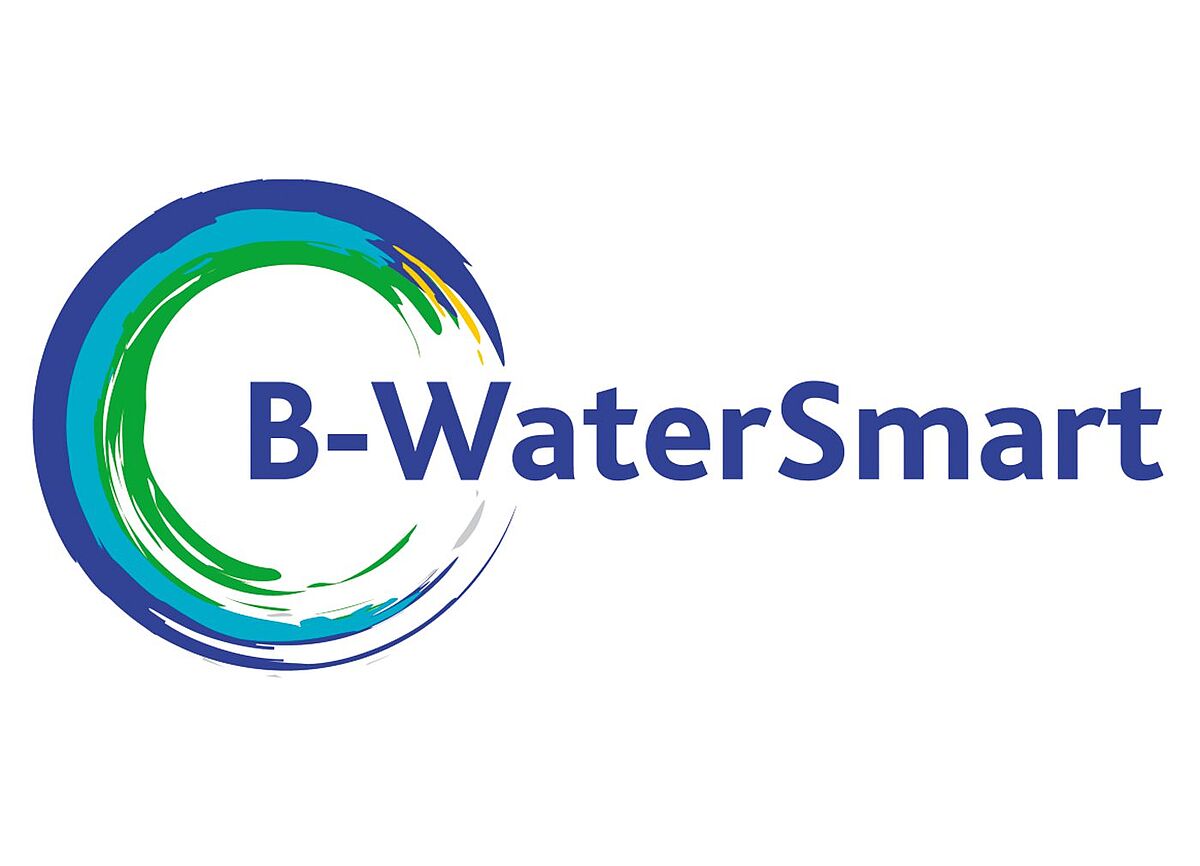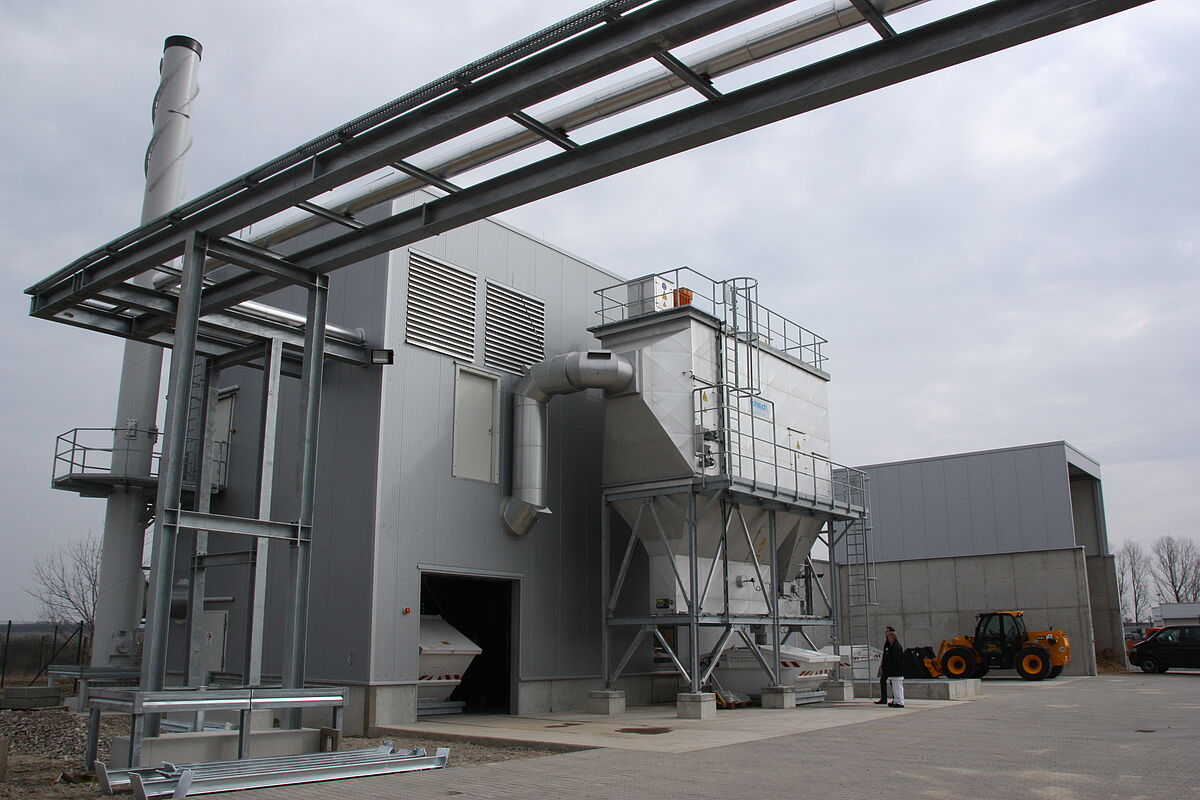Climate and resource protection
Sustainability plays a central role in the production of dairy products. Key factors include the energy consumption of factories and plants, the optimisation of water consumption and the reduction of wastewater and emissions. These factors are monitored by an environmental and energy management system in accordance with DIN ISO 14001 and 50001 and certified by an accredited company.
Our goal is to drive environmental influences down further. Because agriculture and the dairy industry produce considerable emissions. DMK has had a comprehensive environmental and energy management system in place since 2012 and has been working on climate protection ever since. We are also striving to meet the ambitious Paris climate protection target of limiting global warming to less than two degrees Celsius with this aim.
We joined the Science Based Target Initiative (SBTi) in December 2021. This organisation examines and validates climate goals industry-wide in line with the UN Paris Agreement’s climate goals.
At the End of 2022 DMK became a member of the Sustainable Agriculture Initiative (SAI). SAI is an international, collaborative network with the aim of promoting the sustainable transformation of the agricultural sector across all value chains. Within the framework of the "Dairy Working Group", uniform concepts and standards for challenges in the dairy industry such as climate protection, freedom from deforestation and animal welfare are jointly developed.
Reducing water consumption
Water is a key component for production. At our DMK sites, approximately only 1.12 litres of water (2021) is consumed per kilo of raw milk processed. This sets the DMK Group apart from the average achieved by all the dairy operations in Germany – and by a clear margin. This positive trend has continued for several years now and clearly shows how well positioned we are in this area. Of course, the reduction of water consumption has also resulted in wastewater savings.
The savings in water consumption have been made thanks to a variety of individual measures put in place in our production plants.
Making drinking water out of milk? We can do that.
As part of the “B-WaterSmart” EU research project, DMK’s Edewecht site is breaking new ground in lowering water consumption.
Due to the low rainfall in recent years, water is becoming scarce in several regions in Germany, including the north-west. This isn’t the first incident to show us the importance of using resources responsibly. This is why the Oldenburgisch-Ostfriesischer Wasserverband (OOWV) and DMK are running "Living Lab" as part of "B-WaterSmart" together with the IWW and plant manufacturer Enviro-Chemie until mid-2024. Together, we are looking for possible methods for lowering the consumption of drinking water by reusing treated vapours in specific areas of the economy – or for developing new ways to obtain drinking water. The aim in Edewecht is to treat 600,000 m³ of vapour condensate per year. This amount would replace approx. 40-50% of the current fresh water requirement.


Vapours accumulate in many diaries during the evaporation of milk, for example. The condensates are similar to distilled water, however, they are contaminated with organic impurities.
The aim of the project is to develop a safe process so that the treated water meets the quality requirements of the Drinking Water Ordinance and can therefore be safely recycled as a replacement for drinking water during processes carried out at the diary. If this ambitious project proves to be possible to implement technically, the process will in future be used with drying at DMK sites.
“By using treated water, we see great potential to reduce the consumption of drinking water and thus conserve groundwater resources,”
Oliver Horstmann, water and environmental protection officer at the Edewecht site
The “B-WaterSmart” initiative is part of the “Horizon 2020” EU programme and has a budget of 15 million euros, a fifth of which is designated to Germany to fund various project participants. A total of 36 project partners from eight countries will work together over the next four years.
Lower energy consumption
All of DMK’s German sites are certified in accordance with ISO 14001 (Environmental management) and ISO 50001 (Energy management). An Integrated Management System combining quality, occupational health and safety, the environment and energy manages the responsible handling of valuable resources.
The DMK Group’s direct energy consumption came to 1.401.516.738 kWh in 2022 (2021: 1.520.094.616 kWh). DMK’s energy consumption was reduced by more than 15% between 2012 and 2020.
As part of the “Kopernikus Projects for Energy Transition” promoted by the Federal Ministry of Education and Research, DMK’s energy management team is working on ways to make energy more efficient and more beneficial to the grid. In the “SynErgie” sub-project, we are pushing ahead with key model calculations, which provide information about how individual production processes and plants can be included in the energy market in a flexible and profitable way.
We have also been able to use this knowledge in practice in a demonstration model at our plant in Edewecht. We also have a plan to integrate cold storage into the whole model.
In a second funding phase, DMK Group’s energy management team will now spend three more years on optimising the flexibility of cooling systems. To this end, several plants have been reviewed since 2020 to identify potential for optimization.
Cutting carbon dioxide
Our aim is to reduce carbon dioxide emissions.
In 2020, DMK’s emissions came to 8.8 mill. t of CO2 . The average emissions for all farms were around 1.09 kg of CO2 e per kilo of milk – a low footprint for the industry. Over the past few years, when public attention to climate protection increased, DMK has also stepped up its efforts.
We set ourselves the goal in the new sustainability strategy of reducing all greenhouse gas emissions by at least 20%, to 7 million tonnes, by 2030. A further reduction from an already low starting point will be a challenge, but is the right path for us.
Flagship project CO2 -reduction
The emissions in our own DMK production (Scope 1+2) account for only a good 5% of the total CO2 emissions in the dairy value chain. Nevertheless, we also want to cut back in this area. The heat generated by natural gas causes a large share of our Scope 1 emissions. Up to 2022 we have been able to achieve annual reductions of well over 4,500 tonnes of CO2 at the Edewecht factory by sitewide use of exhaust heat from heat sources and heat sinks, which equates to a reduction in natural gas consumption of a good 10% per year. The site was honoured for this by the German Energy Agency dena in 2020 as a flagship project.
Another option is to operate the biomass heating plant at the Waren site. Here, biomass (wood chips) are used as an alternative to fossil fuels to produce process steam.
The biomass used only consists of natural wood. It comprises wood and wood components produced in agricultural, forestry or horticultural businesses or within the framework of landscape conservation, such as tree and shrub cuttings, thinning wood and waste forest wood. A max amount of fuel from 8100 tons can be used per year.

The wood is burned in the combustion plant. The resulting fumes in the combustion room are used to generate steam via a downstream boiler system. The resulting steam is made available to the production areas as process steam.
The site is thus able to prevent annual emissions of 2500 tons of the greenhouse gas, CO2, when compared with fossil fuels like gas.
Climate change does not stop at Germany’s borders and is not only causing pain for consumers, but also the agricultural industry.
In addition to the agricultural climate check, which farmers can use to draw up their individual climate balance and identify potential for improvement, the DMK Group is now taking an important next step with several pilot farms, the so-called "DMK Net Zero Farms".
The project promotes environmental protection on dairy farms. The project involves measures to reduce the carbon footprint of farms. It is being tested through to the end of 2025.
DMK is launching the project at three pilot farms and will use the knowledge gained to create approaches that can later be transferred to all farms.
The focus will be on farm management, forage and arable farming and energy production by the farms, to reduce CO2 emissions. Farms are testing the possibilities of using feed additives to reduce methane, optimizing feed rations, cultivating protein crops or adjusting manure management. Specialist advice is provided by the Thünen Institute of Business Administration, the Leibniz Institute of Agricultural Engineering and Bioeconomics, the plant breeding and biotechnology company KWS, the partner for digitization in milk production FarmCHAMPs, as well as animal nutrition specialist Josera, agricultural trading company AGRAVIS and management consultancy Gottwald&Klepsch. The project is being supported by customer partner Mars Wrigley. All the measures tested are to be evaluated in terms of their effect on milk yield, animal health and practicality.




